It seems that each generation is exposed to more mature or
serious situations at earlier ages than the one before it. There
are a lot more ways for kids to get in trouble online than just
running afoul of the creepily mustachioed basement dweller you see
on "that" episode of Special Victims Unit.
tl;dr: A child was banned from Xbox live and that caused me to
investigate some things which, in turn, surfaced a lot of other
stuff. Unless you're really watching closely, you almost certainly
don't know what your kids are doing online. Kids are clever.
I know a child, not my own, who is 9 years old. Let's call him
"Nine". He's a great kid, has excellent conduct scores in school
(never once has he had to be disciplined in school). He's fairly
shy and generally keeps to himself. He's really a great kid.
One thing he does like doing is playing on his Xbox 360. He has
a neighbor friend who is 10 years old, who sometimes comes over and
plays on the same console. We'll call him "Ten". This 10 year old
"wants to be a hacker" when he grows up. He also has a 360 at his
house. From the sounds of it, he's also poorly supervised when it
comes to computer and gaming time.
Recently, Ten manually updated his Xbox gamer profile and
changed his tenure and some of the avatar's appearance. At the same
time, he helped Nine change his avatar's appearance. Now,
understand that to do this, you have to go to some of the seedier
corners of the Internet and use tools which download your gamer
profile, update the file, and then re-upload it. The use of these
tools violate the Xbox terms of service and are considered an
offense worthy of a permanent ban.
Yep. Both kids were banned until 12/31/9999. 9999.
Harsh, I know, especially if you are an otherwise good 9 year
old. That said, as bad as I feel for Nine, I completely
support it.
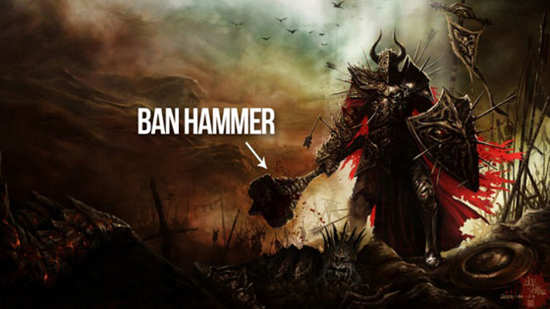
They got a rather vague email from the Policy & Enforcement Team telling them
about the ban. Through the same channels as everyone else, I was
able to ask support for some (slight) clarification as to what
happened. That's how I found out they had modded the gamer profile.
(BTW, take a moment and watch that linked video. It's really
good)
As part of that ban, both kids completely forfeit their
remaining Xbox gold balance. (As well as everything else associated
with their gamer tag, the least of which are their Cheevos). For Nine, that means the
$50 of birthday and Christmas money he saved up to get that 12
month subscription is now gone. Wasted. I'm not sure if he had
downloaded content or games, but I believe that gets lost as
well.
My 7 year old son uses the Xbox under my Live account. After
seeing how the ban process works, you can bet that will stop once
he starts playing Xbox by himself, especially now that my gamer tag
reaches into my Windows 8 machines and my Windows Phone. There's a
lot to loose if you break the rules.
Mom of Nine had no real idea what happened, so I helped her
investigate. As part of this, I was able to see both Nine and Ten's
gamer history using public sites on the Internet (this is easily
discoverable online for accounts which don't keep it private). I
saw some things in there that made me sit back and question what
these kids are being allowed to play.
That got me to thinking about what games are appropriate and how
much parents should watch what their children do. I also had a long
talk with Mom-of-Nine about some of these topics. This post is a
bunch of loosely related "stuff" that came up as part of this. I'll
start with games, but then get into privacy and security.
Game Appropriateness and Ratings
In both children's gamer tags I found, among a number of other
games, the following:


Both are rated M for mature, which
technically means 17+. The problem is, many otherwise fun and
arguably harmless games are rated M for mature, so the
on-box rating has become an almost meaningless mark when
it comes to evaluating games for pre-teen, tween, and teen
kids.
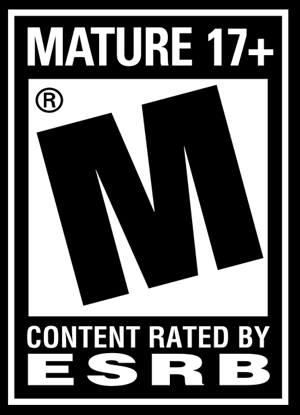
The real issue is that the Mature rating is a large bucket under
which a lot of stuff gets thrown. The Mature rating isn't alone in
this. For example, I let my 7 year old son and 4 year old daughter
together play the various LEGO games on the Xbox (Star Wars, Harry
Potter, Batman) -- those fall into the 10+ category.
There are a number of sites online which do parental reviews of
video games. Some of them have agendas and biases, and some get
overrun by kids posting as adults, so you really just need to find
a site which fits with your own values and which appears to have
relevant reviews. My kids are not yet at an age where I've had to
research using one of these sites, but they're out there. For
example, here's the parents review for Halo 4 and here's the review for Grand Theft Auto IV
I'm not going to make a value judgment for you, nor do I
want to start a discussion about what is appropriate for children
as we all have our own rules. I'm also not trying to make
a martyr out of particular game here, or suggest games can
corrupt or anything like that. Both games are considered excellent
games overall. That said, most parents put more effort into
selecting movies than in video games. (How many would let a 10 year
old see Goodfellas? A Tarantino film? Showgirls? Yet many are fine
with games of equivalent nature.)
- Halo is very violent (4 out of 5 points) and involves a lot of
battles typically in a "shoot the guy over there" first person
shooter style. The only sexual content is the scant cladding on one
character (1 out of 5 points for sex). There's no foul language or
drinking, drugs, or smoking.
- GTA IV is violent (5 out of 5 points), but also contains
"adult" language (5 out of 5 points), drug references (as part of
core gameplay - it got 5 out of 5 points here), calling police and
then shooting them when they arrive, killing drug dealers, and a
fair bit of sexual content (scored 4out of 5 points in that area),
prostitution, lap dances, porn shops etc. The violence itself is at
more of a "personal" level.
Again, both of them have the same rating. Depending upon what
you find concerning, you may disallow both, or just one of them, or
maybe you're fine with both (one parent of a 9yo on the reviews
said GTA IV is fine for her son). Regardless, you can't tell that
by looking at it on a store shelf; you need to read reviews of the
game. Interestingly, the reviews generally agree that GTA IV is
appropriate for 13+ and Halo 4 for 12+. Both of those are a far cry
from 17+.
I'm of the camp which doesn't believe video games turn kids into
killers, but I also don't think that means one should expose their
kids to violence, sex, drugs, etc. before they are mature enough to
understand what they're looking at, and make appropriate real-life
decisions.
As parents, we need to understand the nature and content of a
game before we purchase or allow the purchase of those games.
More importantly, we need to discuss the themes of the
games and get our children to think about what messages the games
are sending them. We often do this for television, games are even
more immersive.
Dangerous Activity
There are lots of places where you can get in trouble online.
From viruses and malware to chatting with basement neckbeards, to
posting inappropriate photos of themselves. Kids are naturally
curious and also feel like they are impervious to harm. Combine
this with perceived anonymity of the Internet, and you can get into
all sorts of bad spots.
Dialogs
Teach your child not to click-through dialogs without reading
them (if they are old enough) or having you read them. Unless you
enjoy malware, extra toolbars, or other scary stuff on the
machines, this is essential.
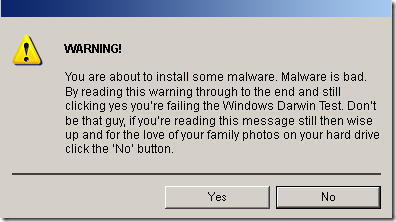
Chat and Email
If you've ever watched Law & Order, you know that chat can
be a bad place for kids to hang out. They're also a place where
kids can release private information in a way that is hard for you
to track. Same goes with Facebook chat and even email. The younger
the child, the more you need to control how these communication
mechanisms are used. My 7 year old son has an email
address, but only for sending email with me. It helps his
typing and reading skills and it's fun. It has also helped him be
smarter about how to read email and how to judge. Eventually he'll
use it to email others (we'll start with a couple of his same aged
friends), but we'll shepherd him through that.

Pictures and webcam/video
When I was young, taking and sharing a photograph required
several steps:
- You had to decide that what you were taking a picture of was
actually worth the film it would use
- You had to wait for the film to be developed (the quickest was
typically an hour). A clerk *saw* the photos when they came off the
line, and if you had something illegal, you could be reported.
- If you wanted to share the photo, you had to physically show
the paper photo to someone.
Each of these was a possible inflection point which helped
prevent impulse decisions. A politician couldn't simply make an
impulse decision to unzip, snap, and tweet all within a matter of
seconds. If you really wanted to expose yourself to someone, it
was easier to just go see them in person.
In general, I tell people never to send to anyone else anything
they wouldn't be comfortable having broadly shared. This is
especially true of photos and video, especially *those* kinds of
photos and video. There have been many stories of
politicians sending photos of their junk to girls and assuming
those would somehow be kept secret. That takes a special kind of
stupid. Even more common are photos shared with
boyfriends/girlfriends which become Internet fodder after a bad
breakup. They meant well, and in the heat of the moment, it felt
like a fun thing to do. However, it's rare to find someone who
marries their high school sweetheart, so just assume that
anything you share could become public in a couple months or a
couple years. If you're uncomfortable with that, don't
share it with anyone, not even that special someone.

If you share it with anyone, you can't guarantee its
privacy. Especially during childhood, kids who are friends
this week may be bitter enemies the next. That information you
shared with them? Those pictures? Expect them to show up on
facebook, or 4chan, or worse. Once something gets on the Internet,
it's almost impossible to remove it. Search engines index too
quickly and stuff goes viral faster than ever. The best way to keep
things private is not to share them.
Online Privacy
I'm calling privacy out separately, even though much of this
could easily fit under the heading of Dangerous Activity.
Many of us have heard that when you get a new expensive device
(like a big screen TV), that you should take the box directly to the dump and not leave it
on your curb. This is so potential thieves driving by your
house don't get a heads up to the new things you have inside. This
just seems like common sense … to an adult.
Many of us also know not to post information about these things
online. Even if you think a thief couldn't figure out your address,
it is surprisingly easy to do so. There are many address search
sites available, for one. For another, many people post their
addresses (or cities, or more) to social networking sites like
Facebook, or mention them in twitter. Usually all it takes is a
simple Google/Bing search to connect the dots.
Kids breaching your privacy
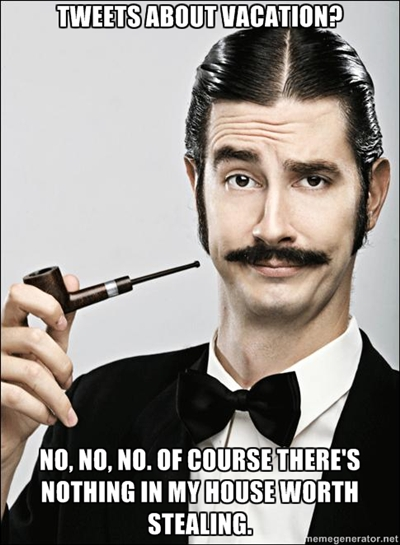
But maybe you're extremely careful. Maybe you don't have any of
that information online. That's awesome. But now your kids are
online - will they spill the beans on you? We worry about kids'
privacy, but what about what they do with *your* private
information?
Do your kids know not to:
- Mention the school they attend (this one is especially
hard)
- Put their address or phone number on anything
- Talk about what their parents do for a living or how much they
make
- Mention when their parents are or are not home
- Announce when the family is taking a vacation (this includes
tweeting or facebooking while on vacation)
- Talk about that cool big ticket item the family just
purchased
- Post photos of themselves online
"Hey, nobody is home" is a big one. For me, I generally
won't tweet or facebook about a vacation until I return. Sure,
that's not as fun as doing it live, but it's safer. Plus,
if you're on vacation, get off the damn Internet and try to pay
some attention to your family. :)
Social networks
Those things can be hard, because kids naturally love talking
about stuff like that. The problem is, with services like Twitter,
and increasingly Facebook, it's hard to control who does or does
not see those things. The business models of most social
networks require them to offer as little privacy as
possible. One even came right out and said it. (paraphrased) "Privacy is for old people".
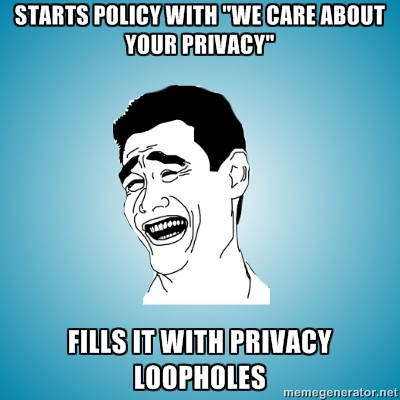
Think about it: Facebook needs you to share as much as possible.
It also needs to make your information available to advertisers,
and to the public web. If Facebook made everything private by
default, they would wither and die. Just like credit card companies
telling you your privacy is important to them (bull), know that
social networks don't have your privacy as their top priority.
Unfortunately, this makes it even harder to keep your kids safe,
and to make sure they're keeping you safe in turn.
Each and every piece of information you post on line, no matter
how small, should be evaluated:
- Could this information cause harm to anyone else if it got
out?
- If the wrong people saw this, could it cause me harm?
- Am I sharing information that is private to someone else? Is it
my secret to share?
But what's that, you say? Your child doesn't have a
Facebook account? I wouldn't be so sure about that.
Facebook may have a policy which requires you to be at least 13 years
old to sign up, but it relies on the honesty of the child. It's
completely unverifiable and unenforceable. I personally know a
number of kids who are on there who are well under 13, and I've
talked with parents who later found out their kids had facebook and
twitter accounts. Every day, parents find out their kids have
social network accounts, created without permission. Just like you
would talk to your kids about sex with the assumption they're not
going to ask your permission to mess around, you should talk to
them about social networks and privacy proactively.
Their personal brand
I encourage people to create "real" accounts for their kids, as
you don't want to have to start over at some designated age. That
has the fortunate, or perhaps unfortunate, effect of causing
someone's personal brand to start at an early age.
I personally *do* want my things from ten or fifteen years ago
showing up on the Internet. I have had a lot of neat projects in
that time. But think of how many changes a kid goes through in the
same amount of time.
Even today, I can search the usenet archive and find posts from
when I was 19. Those were embarrassing, but not horrible. Back
then, we didn't know this stuff would be around forever; the
Internet was relatively new and just recently opened to the public.
It's routine for employers to google/bing their prospective
employees before bringing them in for an interview. Sure, you may
think they'll take into account that they were ten years younger
when they posts that obnoxious rant, but reality is, they probably
won't even if you're lucky enough to have the material dated.
You're dealing with real people reviewing this material, and what
they see *will* color their opinion. Those
racist/sexist/offensive/obnoxious comments at age 13, written on
Facebook or Twitter? Yes, they will cause you problems in your job
search at age 23, and 33, and probably even 43.
This can be an extremely difficult lesson to teach as a child or
teen is probably not going to understand (or care about) what a
professional profile should look like. As a parent, it'll be your
responsibility to help them with this so they don't ruin their
future chances at college.
You may think that the best route would be to then create a
"temporary" profile. The problem is, when you go to transition them
to the "real" profile, they'll have too much invested in the old
one. Even if they are able to transition, they'll have to leave
lots of pointers and breadcrumbs linking the two, effectively
negating the effect of having a temporary profile to start
with.
Illegal Activity
Of course, most of us are aware of the illegal activity that
kids can participate on online. However, we're generally not aware
of how easy it is to do so.
Pirating and illegal downloads
I'm not making a statement here on DMCA or copyrights. As an
author, software developer, and employee of a very large software,
devices, and services company, I do my best to respect copyrights.
At the same time, I can see and understand some of the damaging
effects of over-long and overly strict copyrights both for
authors/artists, and for consumers.

Groups like the RIAA have really cracked down on illegal
downloads of music and video. If caught, your child could cost you
jail time and a significant amount of cash. It's in your own best
interest to make sure your child knows not to download illegal
software or music. Question anything your child gets "for free".
Some things are legitimately for free, others are malware, and
others are warez/pirated and could land you in a heap of
trouble.
Regardless of your personal feelings on the DMCA and
whether software/music/etc. should be free, understand that you or
your kids breaking the law here can cost you dearly. You
are responsible for what your children are doing and cannot claim
ignorance. And yes, the RIAA has gone after individuals.
Hacking
The first movie I saw which really connected with me with regard
to computers was WarGames. Even in that movie, hacking is very
glamorous. In later movies, hackers always had really cool FUI with 3d
models and other cool representations of the "codes" they were
trying to crack. It looks like a lot of fun, until the feds come by
and throw you in a van.
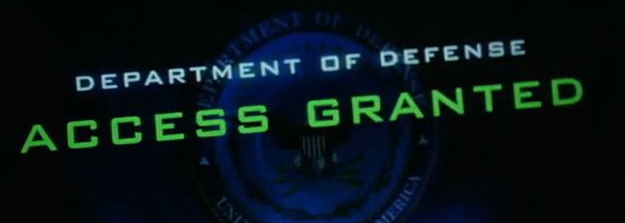
The reality is, hacking is typically either scary professional
crime organizations, or kids getting in over their heads messing
with stuff they never should, trying to be cool. The proliferation
of hacking "kits" makes it easy for even young kids to hack stuff.
Technically, the Xbox stunt which prompted this post is considered
hacking. Jailbreaking your phone? That's a type of hacking.
Stealing someone's facebook password? Yep.
Children should be taught to never try to get someone
else's password, to never access stuff they don't have explicit
permission to, and to always ask for your advice when it comes to
gray areas. In general, if they need to download an
additional program to access "features" not otherwise present in
something, you should look closely at the source of that program
and whether or not it might violate any agreements in place.
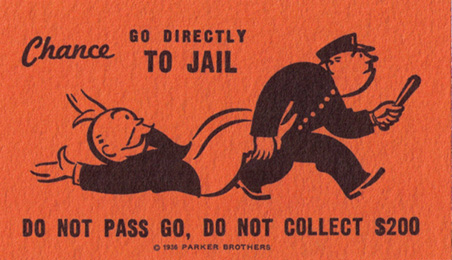
Bullying
Not too long ago, the idea of online dating was laughed at. But
then it took off, and is now a huge industry. Similarly, the idea
of online bullying used to be laughed at. (and if you call it
"Cyber Bullying", I'll laugh at it. Please stop using the term
"Cyber" unless you're talking about world-destroying robots.) Many
parents still don't consider online bullying "real" bullying until
their own child is a victim of it.
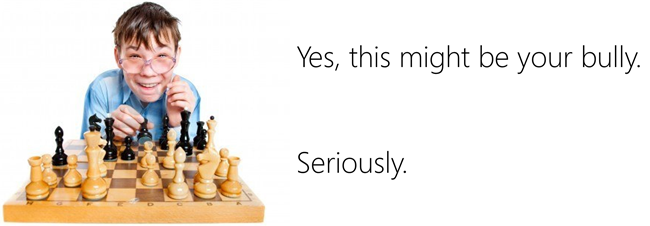
Many schools and organizations have very strict bullying
policies in place. When I was younger, typically you'd get
suspended for fighting in school. These days, bullying can land you
and your child in deeper stuff, including the court system. Bullies
no longer need to be the over-hormoned kid who was kept back twice;
it can be the mousy girl in class, the nerd, the jock, anyone.
Online bullying also leaves an even easier to follow trail than
just beating someone up "behind the Kentucky Fried at 3:00" (that's
where everything happened in my junior high), which makes these
lawsuits even easier.
I don't want to sound like an after-school special here, but
teaching your child about bullying, both to prevent them being a
victim but also to prevent them from being a bully themselves, is
an important part of the set of online tools you'll provide them.
Children need to be taught never to share private
information about others, and never to text/tweet/facebook/message
anything they wouldn't say to someone in person. A good
rule of thumb is "Don't be mean".
What you should do
Despite me filling this post with things you should do, I'm not
here to tell parents what to do. Each parent has their own style
for raising their kids, and that style is typically a very personal
decision. As a concerned parent, and someone who stays up with
technology and software, I just want to make sure this information
is out there.
Please don't ban your kids from using these services. If you do,
they'll just do it out of your sight and out of your control.
That's how kids are. It's better to have them do it where you can
monitor and guide them. In all honesty, I'd much rather my son (or
daughter) stumble across porn on the computer at the kitchen table
rather than over a friend's house when the parents are gone.
I think the worst thing you can do is shut down your
kid's access to online services, or set up some sort of Net Nanny
or other blocker. In the former, your kid will simply take
their activities to places outside your sight (friends' houses,
school, the phone, etc.). In the latter, the nanny software will
simply be a challenge to the kid, and a false security for you.
Most on-computer blocking software is complete crap, and also
blocks legit content. Plus, kids will find a way to work around it.
My son got a Nintendo DS at the age of 6. Within a few
hours of me setting it, he brute force cracked the PIN which
disabled connectivity and 3d. Seriously, he just sat there and
tried number after number until it let him in. He was
6.
Instead, I encourage you to tell your kids the reasons behind
the decisions to restrict certain activities. And then, depending
on the child, you either need to actively monitor what they're
doing, or you trust but verify. For my kids (ages 7 and 4), they
are only allowed to use the computer in the public places in the
house (the kitchen table), and we routinely check on what they're
doing. More importantly, they know which places they are allowed to
go to, and know to ask permission to use anything else. We're not
so naïve as to think that will always work, but it's working well
enough for now. I can only hope that by the time their curiosity
gets the better of them, we've instilled enough knowledge and
values to help make up the difference. Well… a little, anyway
:)
What we should do as a community
In addition to the parental tasks, we should help the
non-technical parents. One fun way to do this might be to create a
package insert for new laptops. I recommend this in humor, but a
serious interpretation of this could be really useful as general
consumers are buying computers and phones for their kids without
realizing what can be done with them.
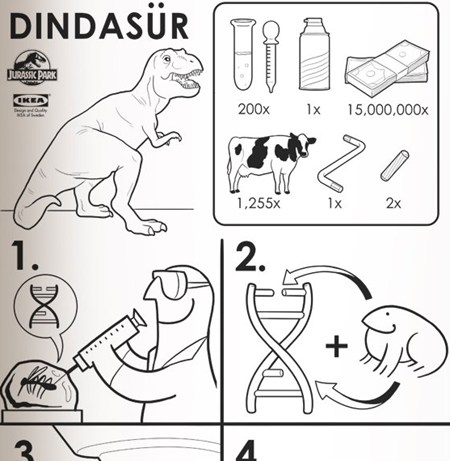
If you're good with graphics arts, I suggest that we should
create a universal Ikea-like diagram that is included with each
new computer and phone. It should include:
- Don't let your kids post personal information
- Don't let them send nude photos
- Don't let them pirate stuff
- Don't bully or let others bully. Don't be mean. Don't lie about
others or spread lies.
- Monitor webcam usage
- Do keep tabs on what your kids are doing
- Do teach your kids what they should and should not do on a
computer
- Do assume your kids are clever enough to fool you
I think everyone would be able to understand that. :)
